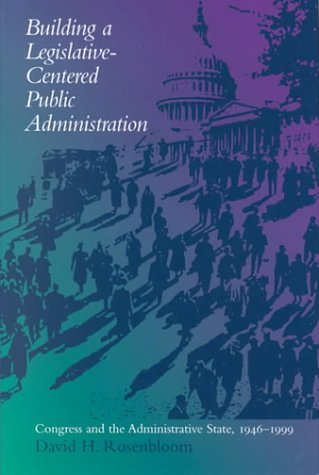What do you think?
Rate this book


In the 1930s and early 1940s, the New Deal and World War II rapidly transformed the size and scope of the federal administration. By 1946, Congress had reluctantly accepted the likelihood that the growing complexity of public policy would require it to delegate more and more legislative authority to the agencies, but it was unwilling to abdicate that authority altogether. Instead, it passed several statutes that allowed agencies to become extensions of Congress and that gave Congress supervision over these agencies on a continuing basis.
In the resulting legislative-centered public administration, Rosenbloom demonstrates, the orthodox managerial values of efficiency, economy, and internal organizational effectiveness are sometimes subordinated to the congressional values of responsiveness, openness, and public accountability.
According to Rosenbloom, it is a misperception of these values that causes some to condemn legislative "micromanagement" of the agencies and call for reform -- reform efforts that ultimately fail because of a lack of understanding of Congress's historical and contemporary role in the federal bureaucracy.
199 pages, Hardcover
First published January 1, 2000